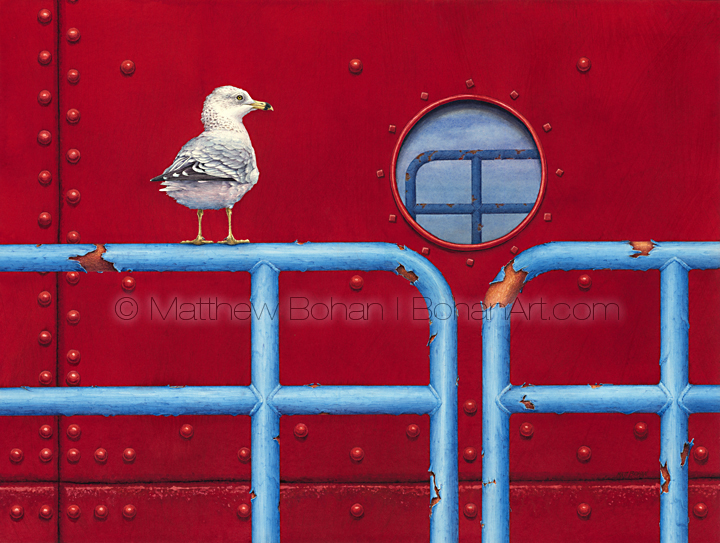
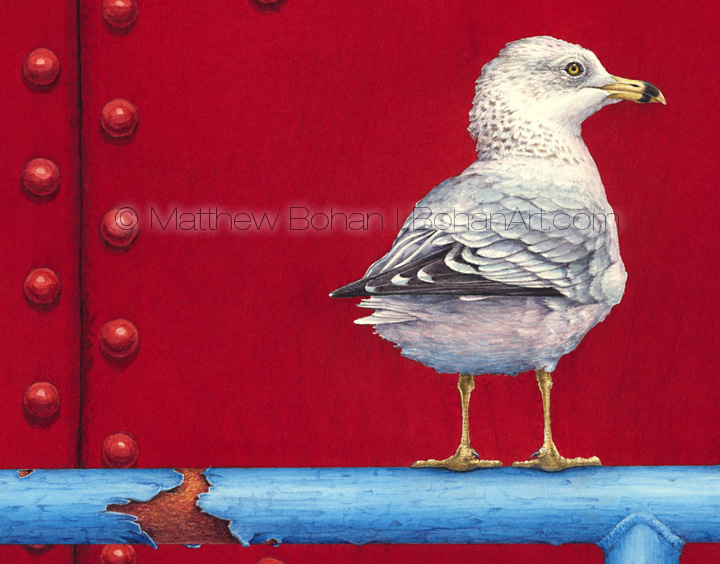
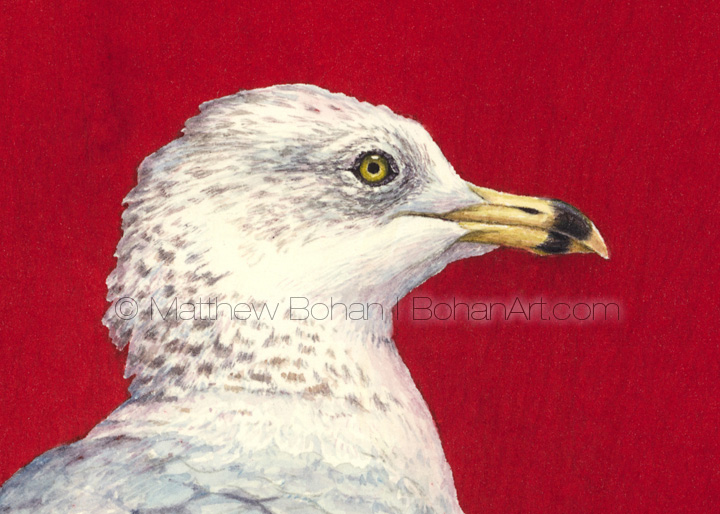
I used to do a lot of larger watercolors, usually in the 18 x 24-inch format but once working 18 x 72 inches! Later I switched to smaller pieces, when we had kids. My theory was that it would allow me to finish more paintings. At first I settled on 10 x 14 as a typical format. Later I went down to 7 x 10 so i could easily fit things on my flatbed scanner. For insects, frogs, toads and salamanders, I’d bring it down further to 5 x 7 inches. Counterintuitively, I noticed that I ended up packing more detail into the smaller paintings, and I spent almost as much time on them as some of the larger ones. At least they were easier to store!
It took me a while to figure out how to pull off this painting. I had sat on the idea since last October. As a family we drove over to Lake Michigan for my wife’s birthday on a birding and lighthouse trip. While at Holland’s Big Red lighthouse, I got photos of an immature Ring-billed Gull on a blue fence with the blurred-out image of the lighthouse behind it. It was a compelling shot, but the bird flew off before I had a chance to really work the shot and make something interesting out of it.
After it bubbled on the back burner of my mind for half a year, I decided to paint it large and push the whole thing in a graphic design direction, making the fence and riveted wall important parts of the composition. I ended up modeling the walls, bird and fencing in 3D so I could play with the design. After two days of monkeying around with a myriad of different compositions, I came up with one that I felt was interesting, and then I took out the paints. When you strip a painting down to so few elements, it makes the placement of every little thing like the rivets more important. Speaking of rivets, there were 65 rivets and bolts to paint on this one.
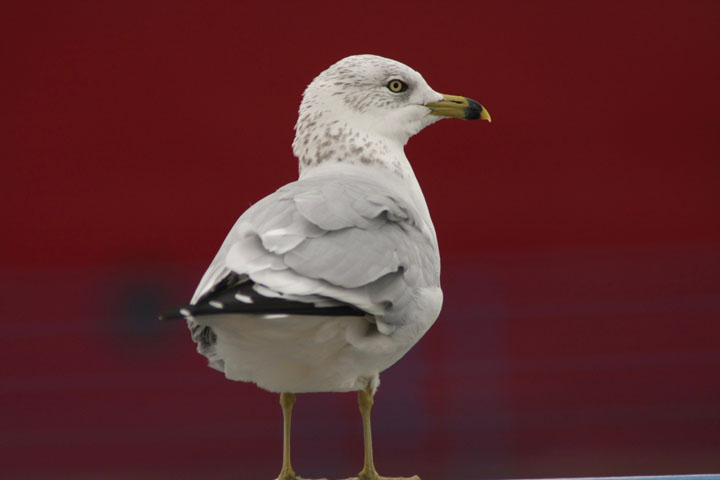
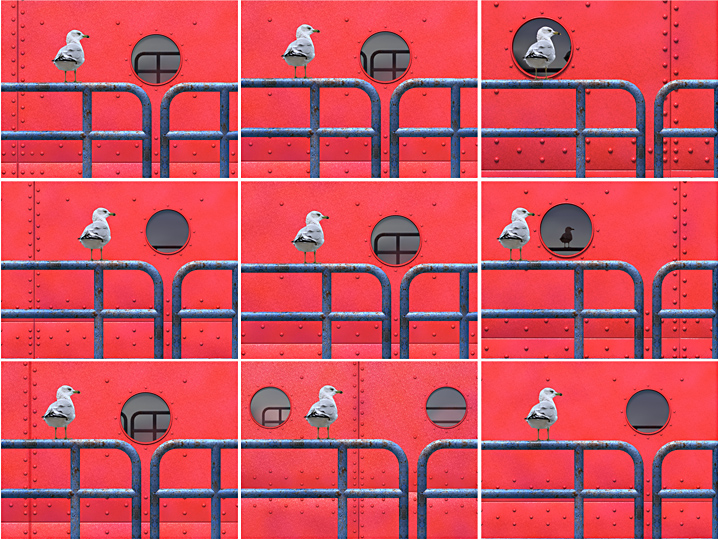
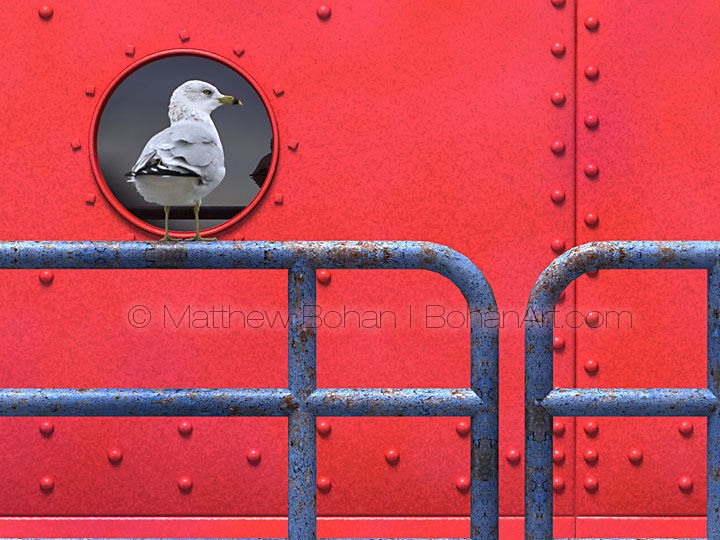
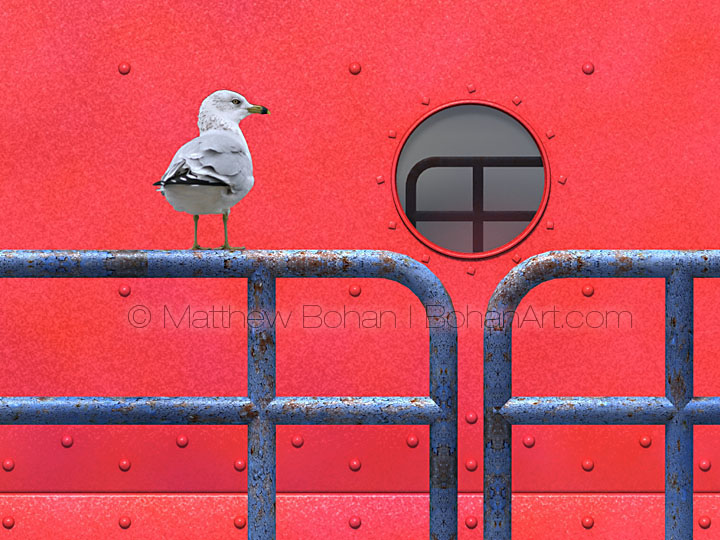
Painting a bird in a setting devoid of a natural landscape and dominated by man-made elements reminded me of a painting I did twenty years ago of a House Finch sitting on an abandoned, rusting tractor.
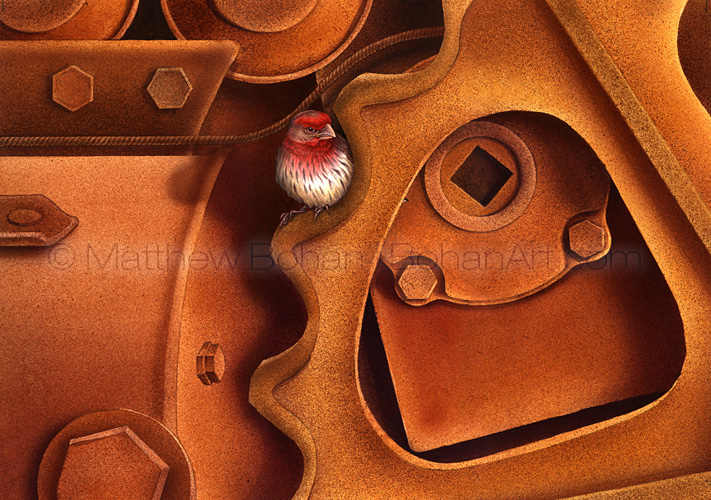

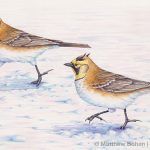
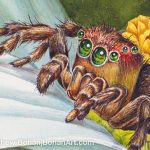
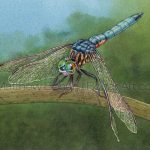
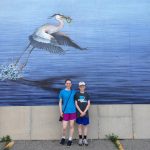
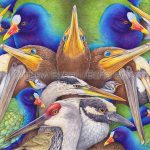
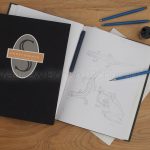
Leave a Reply